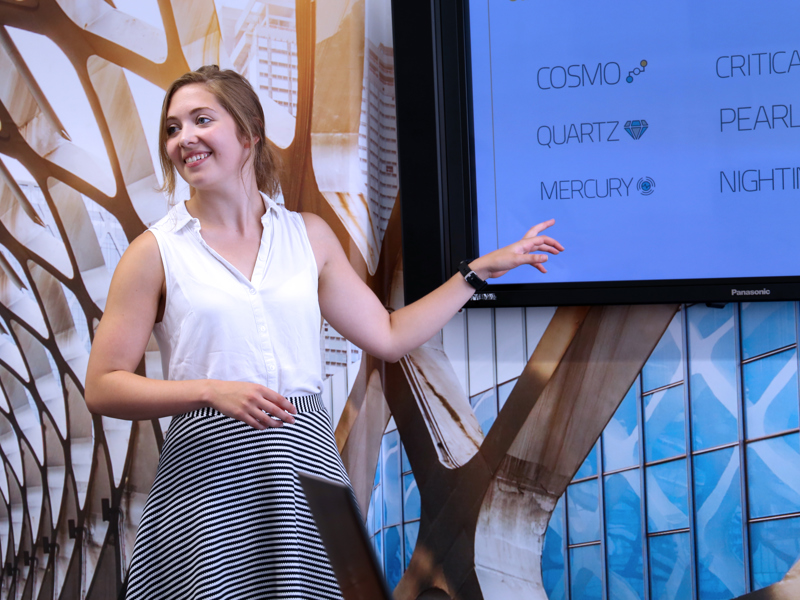Times are changing
It’s been 100 years since William Charles Amey founded the infrastructure business that still bears his name. Generations of Britons since, have driven safely past our people out on the network, defrosting our paths, lighting our highways and keeping our towns and cities moving. That kind of heritage, tradition and dedication means that today, Amey teams manage over 30,000 Km of highways across the UK. But while we keep the country moving, we cannot afford to let our industry simply go through the motions.
Innovation in isolation
The infrastructure industry is filled with good intentions. Ambitious operators and eager IT organisations dive headfirst into solving client problems, through trials and pilots, that often have no bearing on reality, with no plan to be used as part of business as usual. Often time, money, and a plethora of slick marketing documents are the most common outputs, and clients are left without any real value.
In our post-covid recovery, the industry may well divert its gaze towards micro mobility, connected vehicles and future mobility solutions. There is a real danger to lose focus on value generation and end up doing innovation for the sake of it! I’ve seen before where consultants have wheeled out an exciting new data-led approach that is technically fantastic, but in real-world application for our men and women on the ground, delivers no value. This is the pitfall that we continually strive to avoid – don’t do it for the trophy cabinet.
Even if messy and at odds to what is traditionally a waterfall approach in our industry, we collectively need to focus on what is tangible, and whether these exciting new approaches are delivering better outcomes for our clients, and the nations’ road users.
Get your hands dirty
Our industry needs to evolve. Information technology and data-led approaches must be at the forefront of everything we do. Several challenges our people and highways customers face can be helped through data, whether that is better data condition, data accessibility, data governance, or data techniques in generating insight and driving better decision-making.
Rather than setting out to reinvent the wheel, we are working to marry our history and heritage of operations with the new and niche IT & data specialisms entering our industry. When we invest in creating data driven models or platforms, this must translate into the real-world value for assets and their owners. Otherwise, how will today’s improvement ever become tomorrow’s business as usual?
The middle ground of this, is where value lies and where we have been striving to work within. A great example of this is in our current role as Data Science Partner for National Highways. Through our Optimised Working Windows solution, we are helping to improve safety for front-line maintenance operatives to minimise their time waiting roadside for those safe windows, whilst also unlocking an anticipated £60m through maintenance efficiencies.
This kind of value and benefit can only be unlocked through both capability and domain, and IT & data organisations can’t be afraid to get their hands dirty. They need an agile approach that aims to understand the domain, and the actual pain points that we and our customers have. We need to leverage insights from the men and women on the ground. The data they collect, systems they use, and ways of working they follow is inherently more valuable in helping better solutions that drive more value.
Diverse people for diverse problems
The potential to transform highways infrastructure is vast. Data scientists, software engineers and IT analysts working seamlessly with on-the-ground operations and maintenance teams to make better decisions. As our network grows and we begin to accommodate future technologies and approaches, we will begin to encounter an increasingly diverse set of problems to solve.
The answers won’t come solely from data but from people-- people who bring diverse background and skill sets into the industry, who have done weird and wonderful things in other industries and can draw on expertise of solving similar problems. I feel very lucky to sit in an office alongside former beekeepers, historians and mathematicians who modelled sponge growth, and get to work with those who live and breathe the road network and know it like the back of their hand; where accident hotspots lie, where gullies are due to fail, who live and breathe the problems that together we can solve. This environment of different opinions, perspectives, backgrounds is exactly the culture we need to future proof our industry, and ensure our culture is one of inclusion.
But - we and our industry need to continually strive to do better. We need to ditch hang ups about traditional degrees and education and build our teams from more varied backgrounds and experiences. We need to reach out to the younger generations to inspire, open ourselves to career changers, and be more inclusive, less exclusive. New initiatives such as our Data Science Apprenticeship degree is a step in the right direction. Our fully funded programme will allow school leavers to learn and earn on the job, opening our industry to bright minds who previously wouldn’t have had the chance. Years ago, a data science apprenticeship wouldn’t have been considered an option we provide, and it shows steps we are taking are more inclusive.
It’s humbling to think that Amey vans and PPE will continue to be fabrics of the UK’s highways network for years to come. So, let’s empower our people to make the best, data driven, intelligent decisions they can and maintain an efficient network and diverse industry we can all be proud of.
